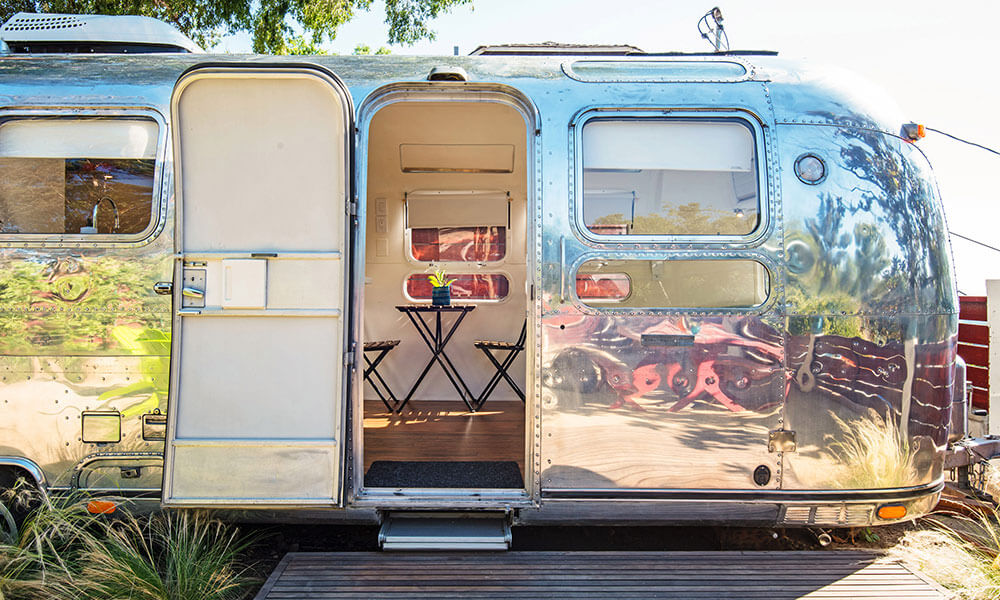
One Airbnb Experience in Havana includes a boat ride from the port of Havana to the Virgen de Regla church. Airnb hopes to expand its Experiences program. (Airbnb)
Over the past three years, meeting organizers and hoteliers have confronted a growing challenge to the traditional room block model: home-sharing. While VRBO, HomeAway, and a few other hotel alternatives are part of that threat, the biggest name in the short-term rental game is Airbnb. The platform’s wide selection of affordable apartments, homes, castles (yes, actual castles), and other accommodation options has resonated with leisure travelers, but Airbnb sees a big opportunity to attract conference attendees, too. In April, the company launched Airbnb for Events, a tool that shows homes near an event venue. But as Airbnb eyes opportunities to attract more groups and business travelers, some roadblocks loom on the horizon.
Take Los Angeles, for example. In mid-December, the Los Angeles City Council approved a new set of regulations that officially legalizes short-term rentals in the city. Good news for Airbnb, right? Not so fast. The regulations stipulate that properties must be the owner’s primary residence — defined as the owner living in it for at least half the year. While there are plenty of hosts who rent out private rooms or their entire homes while they’re away, there are many properties on Airbnb’s platform that are purely rentals. In some cases, they are not managed by individual owners, but instead by management companies that snatch up multiple properties with plans to rent them every night of the year. These savvy investors — and target of lawmakers who say that short-term rentals are creating a shortage of affordable apartment housing for residents — will no longer be able to legally operate in Los Angeles. Even the hosts who do live in their homes will be impacted by the new law, which restricts the number of rental nights to a maximum of 120 days each year.
John Choi, Airbnb’s public policy manager, called the new regulations a “big step in the right direction,” but at the same time, Airbnb cautioned L.A. officials that restricting the number of available rental nights could dramatically reduce the tax revenue that the city earns from Airbnb hosts.

This “Hilltop Airstream Retreat” is one of Airbnb’s lodging options in Los Angeles. (Airbnb)
Bumpy Path Toward an IPO
Airbnb has bold plans — not just to take over hotels, but to transform the entire travel industry. From plans to expand its Experiences program to rumors of a move into aviation, Airbnb echoes many of the disruptive companies in Silicon Valley that have been able to reap the benefit of working ahead of regulations that haven’t caught up with them. That lack of regulation has led to Airbnb’s current valuation of $30 billion, which helped land the founders on the cover of Forbes. The next step on the company’s journey appears to be an initial public offering that could come as early as June 2019.
Investors may be clamoring for a stake in the company, but Los Angeles isn’t the only place where Airbnb’s business model is encountering some serious hurdles. The company is in a battle in Boston over new regulations that make renting homes by the night illegal. In New York City, the latest installment in the never-ending saga of Airbnb legal proceedings includes a $21-million lawsuit against real estate investors. The company’s issues aren’t confined to the U.S., either. In June of 2018, the company had to cancel reservations for guests in Japan due to compliance issues.
All of those challenges need to be navigated along Airbnb’s path to Wall Street. Do you think the company will be able to thrive while operating under tighter rules? And will those regulations make it more or less likely that Airbnb can play a bigger role in providing housing for meetings and events? Go to Catalyst’s website to share your perspective.
Regardless of how you feel about Airbnb’s efforts to disrupt the travel industry, there is quite a bit to learn about Airbnb’s approach to face-to-face experience design.
